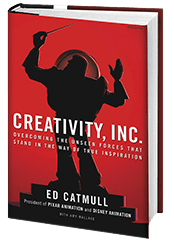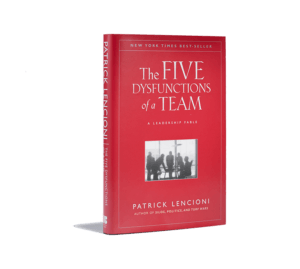How Creativity, Inc. Helped Brain Byters Grow Together

Welcome to the BBC Book Club! Every year, the whole team reads a few books together and applies the lessons learned to ourselves — both in our work as digital marketers and in our personal lives. As a creative digital marketing agency, it comes as no surprise that we’re pretty into Pixar. Who isn’t? Their […]
How The Five Dysfunctions of a Team Helped Brain Byters Grow Together

Welcome to the BBC Book Club! Every year, the whole team reads a few books together and applies the lessons learned to ourselves — both in our work as digital marketers and in our personal lives. A while back, we found ourselves at an impasse: Our small digital marketing agency was growing. More and more […]